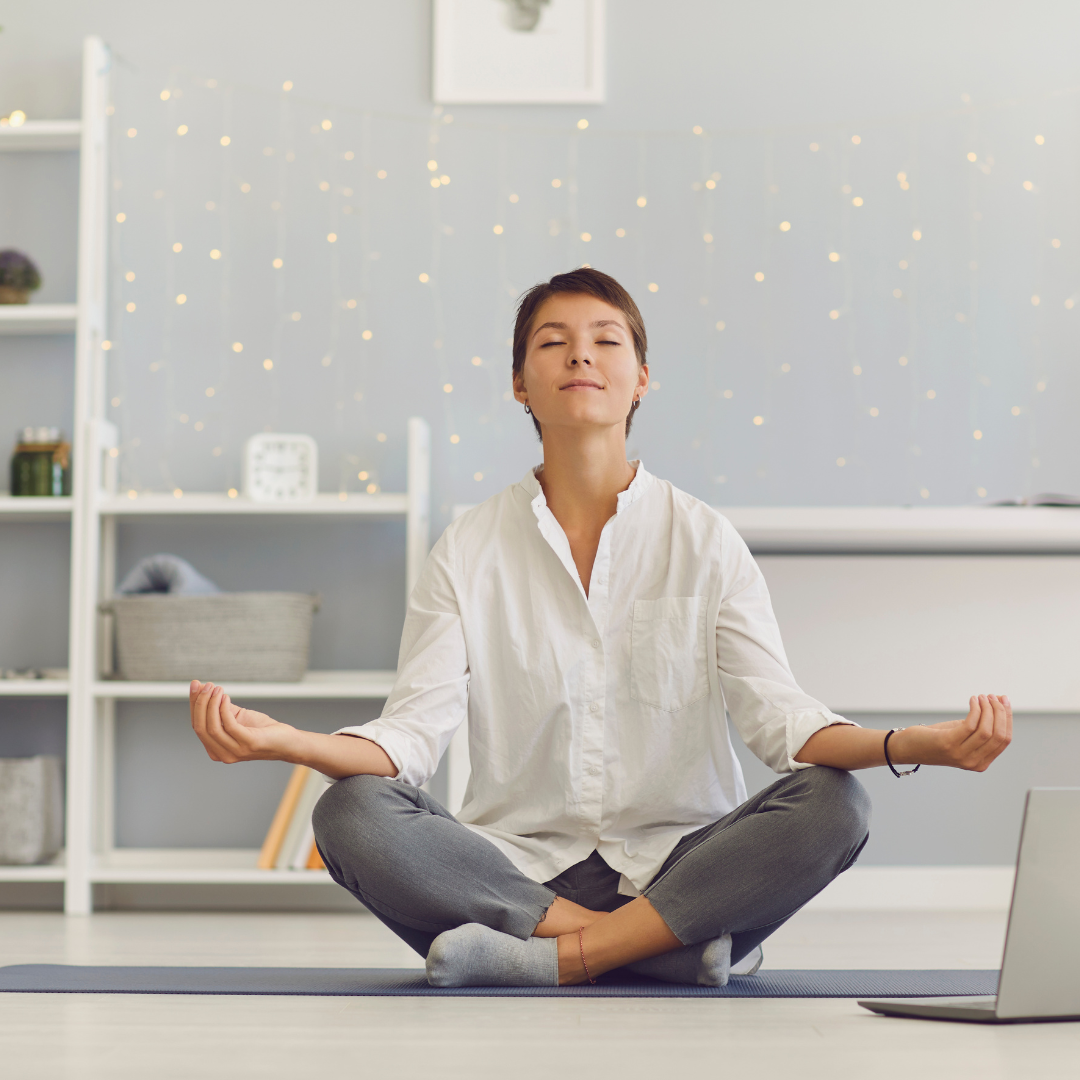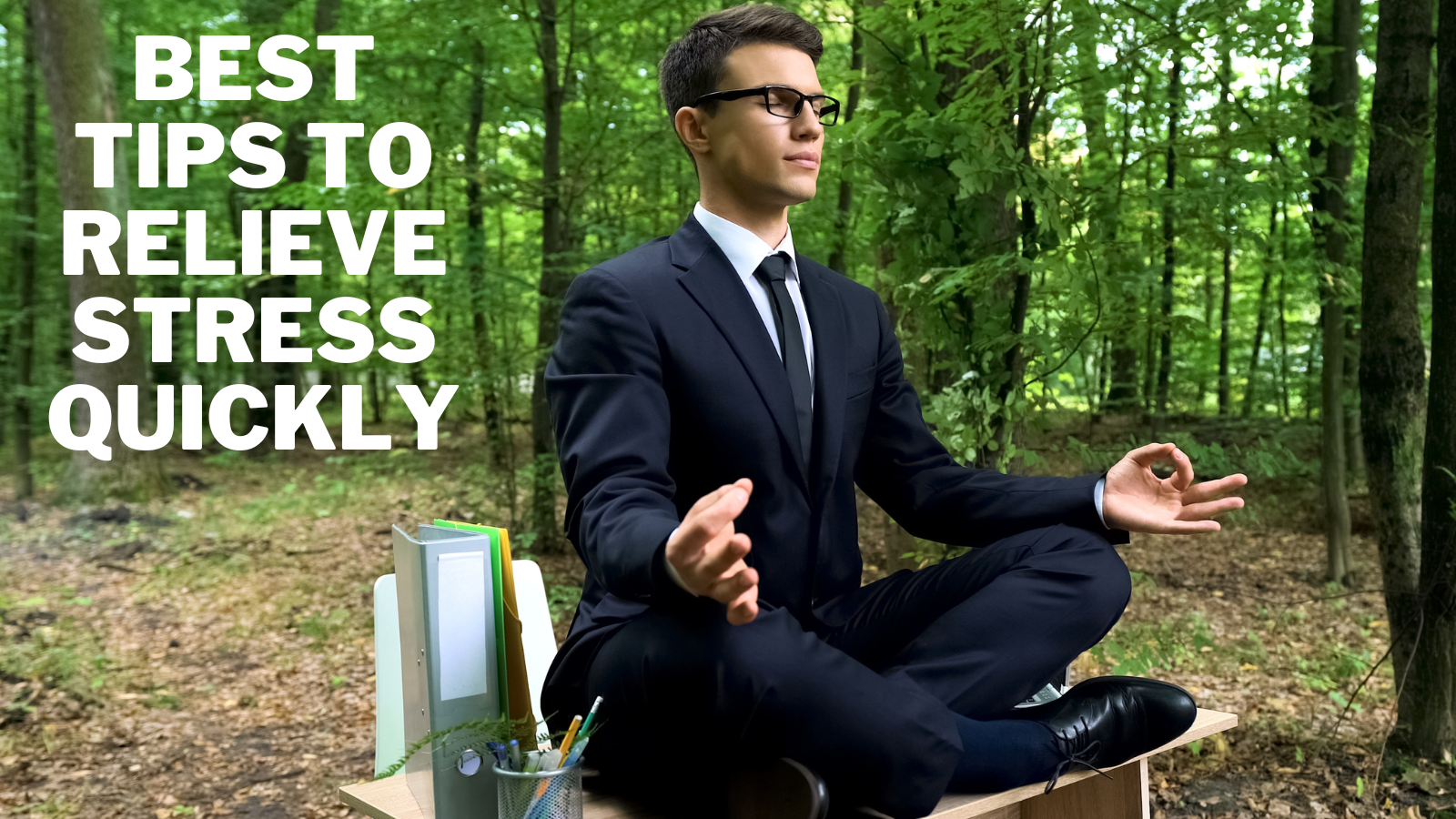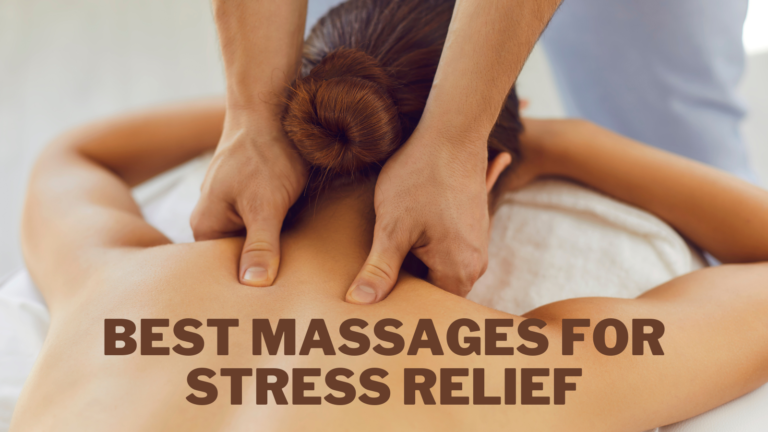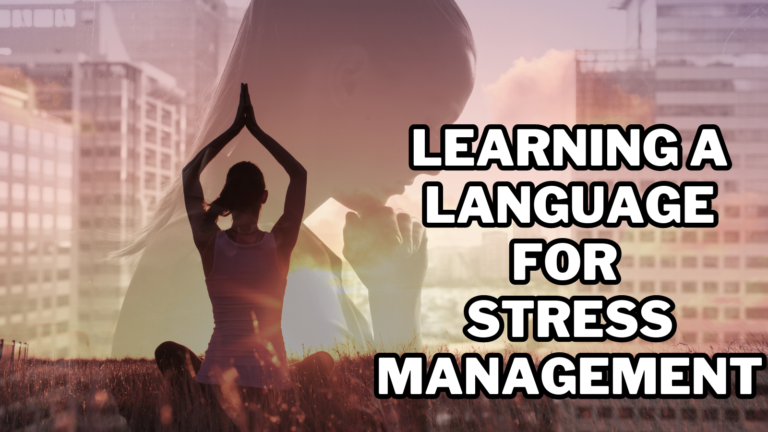Best Tips To Relieve Stress Quickly
Best Tips To Relieve Stress Quickly
Stress is a common part of daily life that can affect us physically, mentally, and emotionally.
While there are many ways to manage stress in the long term, sometimes we need quick and effective strategies to relieve stress at the moment.
In this article, we'll explore some tips and techniques that you can use to quickly and easily reduce stress levels and find a sense of calm.
Whether dealing with a difficult situation or simply feeling overwhelmed, these stress-relieving tips can help you feel more centred and balanced.

The Negative Impact Of Stress On Health And Well-Being
Stress is a normal, necessary component of life and can be advantageous in moderation. It can compel us to act, maintain focus, and give our best effort.
However, prolonged or excessive stress can harm physical, mental, and emotional well-being.
Long-term stress can factor in several health issues, such as high blood pressure, heart disease, depression, anxiety, and sleeplessness. Additionally, it can lower immunity, leaving us more prone to sickness.
It is crucial to develop stress relief methods to safeguard our general well-being. By handling stress well, we can enhance our health, strengthen our resilience, and live happier, more fulfilling lives.
Stress can have many negative effects on our physical, mental, and emotional health, including:

1. Physical Health Problems
Chronic stress can contribute to various physical health problems, including high blood pressure, heart disease, diabetes, obesity, and digestive issues. Stress can also weaken the immune system, making us more susceptible to illnesses.
2. Mental Health Problems
Prolonged stress can increase the risk of developing mental health problems such as anxiety, depression, and post-traumatic stress disorder (PTSD).

3. Cognitive Problems
Stress can affect our ability to concentrate, remember things, and make decisions. It can also interfere with our problem-solving and critical-thinking skills.
4. Relationship Problems
Stress can strain our relationships with family, friends, and coworkers, causing conflicts and communication breakdowns.
5. Behavioural Problems
Stress can lead to unhealthy coping behaviours such as overeating, substance abuse, and smoking. It can also affect our sleep patterns, causing insomnia and other sleep disorders.

6. Decreased Productivity
Chronic stress can also hurt our productivity and performance at work or school. Stress can cause difficulty concentrating, poor decision-making, and decreased motivation, reducing work or academic performance.
7. Financial Problems
Financial stress is a common form of stress that can have serious consequences. Financial difficulties such as debt, job loss, or financial insecurity can cause significant stress and anxiety, leading to various physical and mental health problems.
8. Reduced Quality Of Life
Chronic stress can reduce our overall quality of life by affecting our relationships, our ability to enjoy leisure activities, and our general sense of well-being.
It can also increase our risk of developing chronic health conditions, reducing our life expectancy.

9. Increased Risk Of Addiction
Stress can also increase the risk of developing an addiction to drugs, alcohol, or other substances.
People may turn to these substances to cope with stress, which can lead to many negative consequences.
10. Sleep Disturbances
Stress can disrupt our sleep patterns, making falling or staying asleep difficult. This can lead to sleep disturbances such as insomnia or sleep apnea, further increasing stress levels.
11. Digestive Problems
Stress can also cause digestive issues such as stomach pain, bloating, constipation, or diarrhea. These symptoms can be uncomfortable and affect our daily functioning.
12. Skin Problems
Stress can affect our skin, causing acne, eczema, or psoriasis. Stress can also worsen existing skin conditions, leading to further discomfort and emotional distress.
In summary, stress can affect many aspects of our health and well-being. By learning how to manage stress effectively, we can reduce its negative impact and improve our overall quality of life.

Tips To Relieve Stress Quickly
Chronic stress from daily life should be minimized as much as possible for one's overall health.
This is because ongoing stress harms your health and raises your chance of heart disease, anxiety disorders, and depression.
It's crucial to understand that stress differs from mental health issues like anxiety and depression, which require expert medical care.
The following guidance might be helpful for some people, although it might not completely reduce stress.
Here are some of the best evidence-based ways to relieve stress:

1. Practice Deep Breathing
Deep breathing is a simple and effective relaxation technique that can help reduce stress levels quickly.
When stressed, our breathing tends to become shallow and rapid, exacerbating anxiety and tension.
Taking slow, deep breaths can activate the body's relaxation response and help reduce stress levels.
Find a calm, cozy spot to sit or lie down to practice deep breathing. With your eyes closed, inhale deeply through your nose while counting to four.
Hold your breath for four counts, then slowly let it out through your mouth for the following four.
Repeat this procedure numerous times, concentrating on how your breath feels as it enters and exits your body.
As you practice deep breathing, you may notice that your heart rate slows down and your muscles start to relax.
This can help reduce feelings of tension and anxiety, making it easier to cope with stressors in your daily life.
You can practice deep breathing at any time, whether at home, work, or on the go.
In addition to deep breathing, many other relaxation techniques, such as progressive muscle relaxation, visualization, and guided imagery, can help reduce stress levels.

2. Take A Break
Taking a break is an effective way to reduce stress levels and promote relaxation. When we're overwhelmed and stressed, it can be difficult to focus on anything else.
Taking a break allows us to step back from the situation and clear our minds, allowing us to return to our tasks with renewed energy and focus.
There are many different ways to take a break, depending on your preferences and schedule.
Some options include walking outside, practicing a quick meditation, listening to calming music, or engaging in relaxing activities such as reading or drawing.
The key is to find an activity that allows you to take your mind off of whatever is causing your stress and give yourself a chance to relax and recharge.
During your break, it's important to focus on the present moment and avoid dwelling on past or future stressors.
You can practice mindfulness techniques, such as deep breathing or body scanning, to help you stay focused and present in the moment.
Taking breaks throughout the day can help reduce stress levels and promote overall well-being.
Giving yourself time to rest and recharge can improve your productivity and reduce the risk of burnout.
Take regular breaks throughout your day; you may feel more energized, focused, and less stressed.

3. Exercise
An effective stress reliever can lift your spirits and encourage relaxation. Exercise causes the body to release endorphins, organic substances that improve mood and lessen tension and anxiety.
You don't have to do a full workout to feel the benefits of exercise on your stress levels.
Even a short walk or a few minutes of stretching can help release tension and clear your mind. The key is finding an activity you enjoy and can easily fit into your daily routine.
If you've never exercised before, start cautiously and build up the length and intensity of your workouts over time.
On most days of the week, try to get at least 30 minutes of moderate activity. This can involve exercises like cycling, swimming, yoga, or brisk walking.
In addition to its stress-reducing benefits, exercise has many other health benefits, such as improving cardiovascular health, increasing muscle strength and flexibility, and reducing the risk of chronic diseases such as diabetes and obesity.
Consider adding exercise to your everyday routine if you're feeling stressed. Regular exercise, whether a casual stroll around the block or a vigorous workout at the gym, can lower stress levels and enhance your general well-being.

4. Practice Mindfulness
A mindfulness practice entails being in the moment without passing judgment. It might be a good approach to relaxing and lowering stress levels.
When we practice mindfulness, we become more conscious of our thoughts, feelings, and bodily sensations, which can help us feel more grounded and at ease under stress.
Depending on your tastes and schedule, there are various ways to practice mindfulness. One of the most widely used methods is to pay attention to your breathing.
Locate a peaceful area where you won't be bothered, then relax while sitting or lying down.
Take a few slow, deep breaths while closing your eyes, concentrating on how the air feels as it enters and leaves your body.
You can also perform a body scan, in which you concentrate on various body regions and note any sensations or emotions that surface.
Starting at the top of your head, focus on each area of your body as you move down to your toes.
Another mindfulness technique is to observe your thoughts without trying to change them.
Sit quietly and keep your thoughts as they come and go without getting caught up in them or trying to solve any problems.
Mindfulness training can lower stress levels and improve general well-being. It can enhance focus and concentration and lower the danger of burnout.
Consider mindfulness if it's just for a little while each day. You become less stressed and more relaxed as a result.

5. Practice Gratitude
A powerful strategy for refocusing your attention on what brings you joy in life rather than what is stressing you out is to practice thankfulness.
Your outlook will improve, and your stress levels will drop. We are more likely to feel pleased, hopeful, and stress-resilient when we concentrate on what we have to be grateful for.
One of the simplest methods to practice gratitude is taking a few minutes each day to jot down three things you're grateful for.
These might be insignificant things, like a great cup of coffee or a breathtaking sunset, or bigger things, like a helpful friend or a noteworthy achievement. You can enjoy and appreciate them more by putting them in writing.
You can also think about the things you're grateful for. Before bed or when you wake up in the morning, take a few minutes to reflect on what you're thankful for in your life. This can help you start or end your day positively and reduce stress.

6. Connect With Others
Connecting can greatly reduce stress and improve mood. Spending time with loved ones or talking to a friend can help you feel more supported and less stressed.
It can also allow you to share your thoughts and feelings, which can be a helpful way to process stress and gain perspective.
If you don't have a close support system, consider joining a support group or seeking new social connections.
This can be a great way to meet others who are going through similar experiences and provide a sense of community and belonging.
Additionally, volunteering can be a great opportunity to make friends and de-stress.
Giving back to others can offer you a sense of fulfillment and purpose that can help combat the damaging effects of stress.
Consider helping at a neighbourhood nonprofit or organization that shares your interests or principles.

7. Get Enough Sleep
Sleep is crucial for managing stress and promoting overall health. Lack of sleep can increase stress levels, making it harder to cope with everyday challenges.
In contrast, getting enough sleep can help reduce stress levels and improve your ability to handle stress.
Sleep experts advise between seven and nine hours per night for most adults. Try maintaining a regular sleep routine by going to bed and waking up at the same time every day to help you develop better sleeping habits.
Establish a soothing bedtime ritual to help your body recognize when it is time to sleep, such as taking a warm bath, reading a book, or listening to quiet music.
Before going to bed, staying away from caffeine and alcohol will help you sleep better.
While exercising earlier in the day will encourage better sleep, you should avoid exercising immediately before bed because it can make it difficult to fall asleep.

8. Eat A Healthy Diet
Consuming a nutritious, balanced diet helps lower your stress levels by giving your body the nutrition it needs to function effectively.
By avoiding processed meals and emphasizing complete, nutrient-dense foods like fruits, vegetables, whole grains, and lean protein, you may help control your mood and energy levels, which will help you feel better overall.
Research has shown that certain foods can have stress-reducing properties. For example, foods rich in omega-3 fatty acids, such as salmon and walnuts, can help reduce inflammation and improve mood.
Foods high in vitamin C, such as citrus fruits and berries, can also help reduce stress levels by reducing cortisol, a hormone associated with stress.
Staying hydrated during the day is crucial. Drink at least eight glasses of water daily because dehydration can make you feel exhausted and increase stress levels.

9. Laugh
Laughter is indeed an effective way to reduce stress levels. When you laugh, your body releases endorphins, natural chemicals that help reduce pain and produce feelings of pleasure and well-being.
Endorphins also help lower cortisol, the stress hormone, in the body. Laughter can also stimulate circulation and aid in muscle relaxation, which can help reduce tension and stress.
Watching a funny movie or TV show, reading a humorous book, or spending time with friends who make you laugh are all great ways to incorporate laughter into your daily routine.
You can also try laughter yoga, which involves a series of laughter exercises and deep breathing techniques.
In addition to reducing stress levels, laughter has other health benefits. It can boost the immune system, improve sleep quality, and relieve pain.
So, if you're feeling stressed, take a break and find something to laugh about. Your body and mind will thank you.

10. Practice Self-Care
To effectively manage stress and advance general well-being, one must practice self-care.
It entails looking out for your physical, mental, and emotional well-being. You can feel more at ease, renewed, and stress-resilient by engaging in self-care practices.
Self-care can come in many different ways, such as taking a relaxing bath, doing yoga, meditating, or participating in an activity you like.
Taking care of your physical health also includes eating a good diet, getting adequate sleep, and exercising regularly.
The secret is identifying activities that make you happy and relaxed and then incorporating them into your routine.
When you're worried or busy, it might be especially difficult to prioritize your own needs.
But it's crucial to remember that caring for oneself is a necessity, not a luxury. By prioritizing self-care, you may lower your stress levels, boost your mood, and develop a higher feeling of well-being.

Conclusion
Stress affects many people frequently and can harm physical and mental health. To keep stress from becoming chronic and interfering with our daily lives, it's critical to learn good coping mechanisms.
Always remember that stress management is a continuous process and that what works for one person may not work for another.
Find the best methods for you and incorporate them into your daily routine regularly. You may lessen tension and build better peace of mind with a little work and perseverance.
I trust you enjoyed this article about the Best Tips To Relieve Stress Quickly. Please stay tuned for more blog posts to come shortly.
JeannetteZ
>>>Please click here to read my all-inclusive article about Lessons That Will Teach You All About Stress<<<
>>>Are you interested in Natural Healing And Stress Relief through Herbs? Please click here for my #1 Recommendation<<<
Your Opinion Is Important To Me
Thoughts? Ideas? Questions? I would love to hear from you. Please leave me your questions, experiences and remarks about the Best Tips To Relieve Stress Quickly in the comments section below. You can also reach me by email at Jeannette@Close-To-Nature.org.
Disclosure
This post may contain affiliate links. I earn from qualifying purchases as an Amazon Associate and other affiliate programs. Please read my full affiliate disclosure.
You might also enjoy these blog posts:
How Stress Affects Your Health
Best Stress Relief Toys For Kids
Best Stress-Relieving Activities At Work








